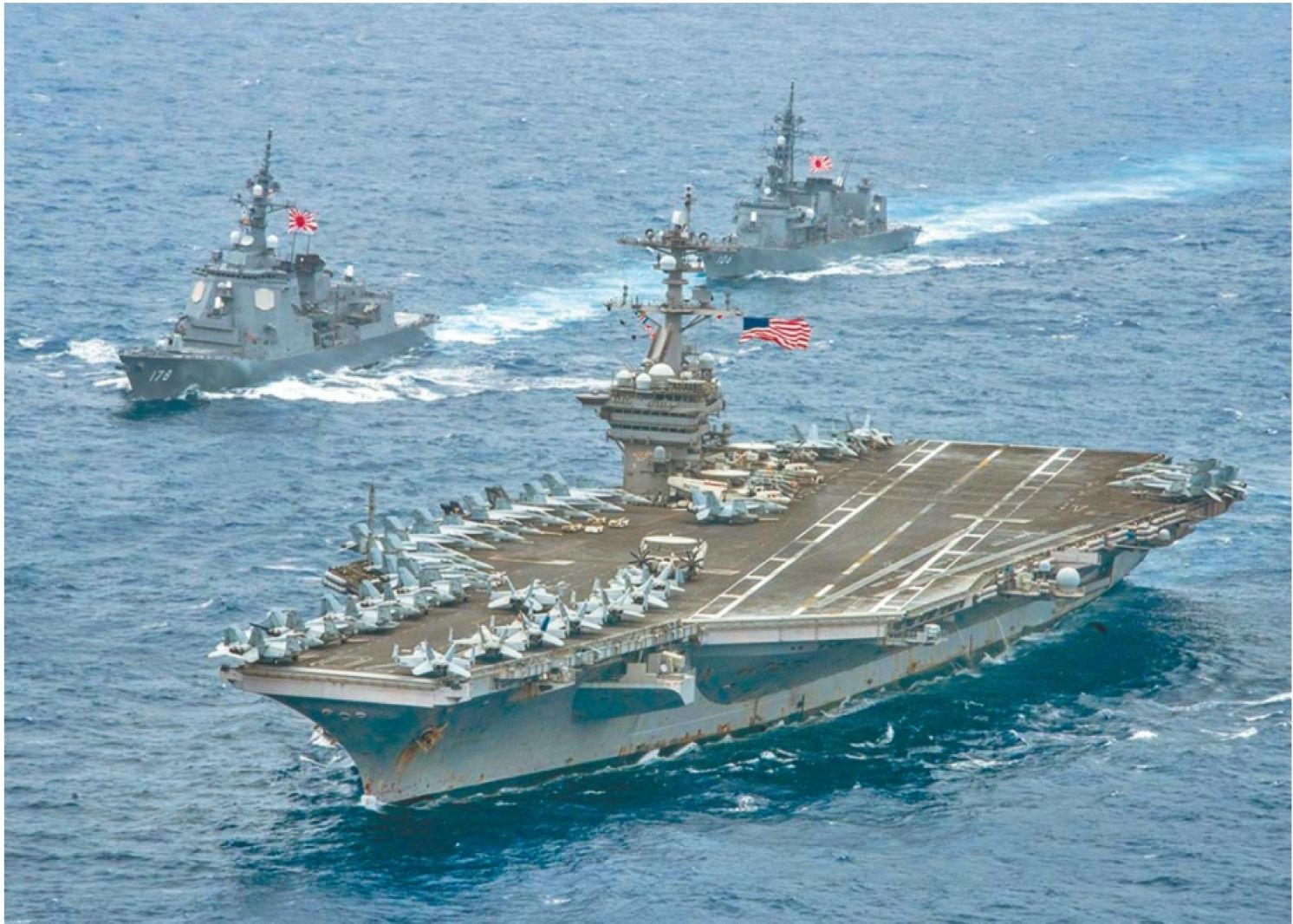
Is the Taiwan Strait Becoming A Proxy War Battleground?
By Philip Yang
China Times, July 18, 2021
In its Defense annual white paper released on July 23, Japan has, for the first time, delinked Taiwan from the chapter of China and put it in the new added chapter on "U.S.-China Relationship." For the first time, the report also emphasized that stabilizing the situation surrounding Taiwan is important for Japan's security and international stability. The move has drawn the attention of all the stakeholders concerned.
Since the U.S.-Japan “two-plus-two” meeting on March 16 this year, the administration of President Joe Biden has started to "internationalize” the Taiwan issue and has reiterated "the importance of peace and stability across the Taiwan Strait" in its bilateral and multilateral meetings and statements with Japan, South Korea, and Group of 7 countries. The Biden administration has asked its allies to make public their stance on the stability in Taiwan Strait and to support its Free and Open Indo-Pacific (FOIP) strategy. Apparently, President Biden has made Taiwan's security as a test point for its FOIP.
The joined statement with President Biden signed by Prime Minister Yoshihide Suga of Japan during his visit to the United States on April 17 also emphasized the importance of peace and stability in the Taiwan Strait. This marked the first time in 52 years that the leaders of Japan and the United States has referred to Taiwan in a joint statement.
What is more, Minister of Defense Nobuo Kishi of Japan stated that the peace and stability of Taiwan "relates directly to Japan." In his public remarks, Deputy Prime Minister Taro Aso also indicated on July 5 that should China invade Taiwan, Japan would define the situation as "a crisis of survival," and will exercise its right of collective self-defense and will jointly defend Taiwan with the United States.
From the public statements by Japanese leaders and the emphasis in the defense white paper on Taiwan's security and the competitions in economics, politics and diplomacy between China and the United States, we know that Japan has embedded its security in the FOIP strategy of the United States and has become the spokesman of FOIP strategy in the region.
The emphasis, in Japan's defense white paper, on the security in Taiwan Strait, however, should not draw excessive response from Taiwan. First, although the anti-China measures by the Quadrilateral Security Dialogue (Quad) will be strengthened in the future, I do not think that the Biden administration will publicly elevate it into a "U.S.-Japan mutual security cooperation system versus China" formula, for this would mean a new cold war in Asia.
Secondly, Japan's diplomatic and security policy is constrained domestically at three levels: Constitution and Laws; public opinions and bureaucracy. It is very difficult for Japanese politicians to break Article 9 of their Constitution and get the Japanese military intervene directly in a war in the Taiwan Strait.
The change of tone in Japan's security policy in reality is a part of the U.S. FOIP strategy. From now on, Japan's expressed concern for the security in the Taiwan Strait will become a new normal. We will also see subtle changes in the U.S.-Japan security system. All of these, however, will not change the structure of East Asia's security environment. What we in Taiwan should be concerned about is the Taiwan Strait devolving into a battleground for proxy warfare!
The author is former deputy secretary-general of the National Security Council, Republic of China (Taiwan).
From: https://www.chinatimes.com/opinion/20210717003515-262104?chdtv